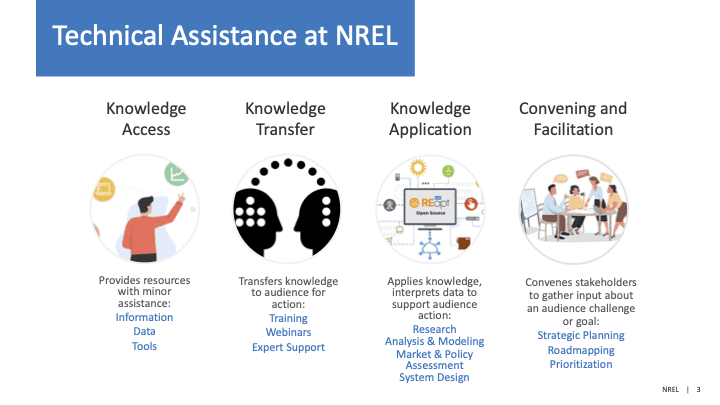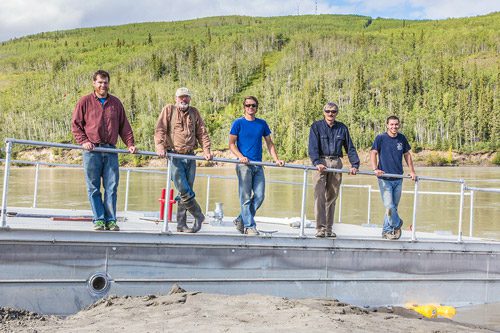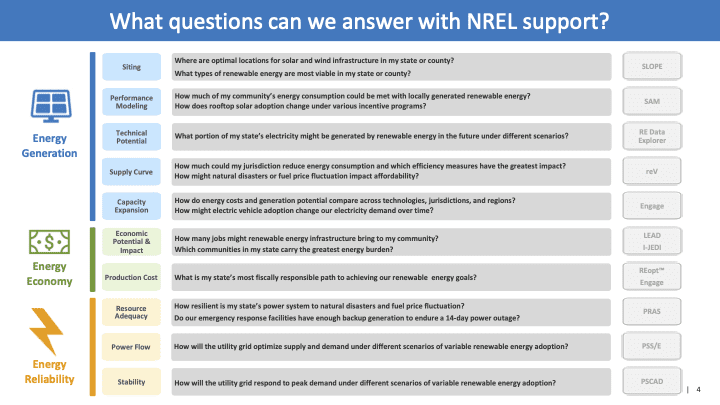
Technical assistance is an important component of creating energy resilience in rural communities. Yet, the term “technical assistance” can be hard to grasp. In this article, we outline:
- What is technical assistance?
- How can technical assistance help my community?
- What does technical assistance from ETIPP look like?
- When and how can my community apply for technical assistance?
What is technical assistance?
Technical assistance addresses a specific challenge or need that is essential to the success of a current project’s implementation. The result is usually a tangible product or specific deliverable designed to help move a project forward towards its successful completion. REAP has teamed up with Alaska Center for Energy and Power (ACEP) and the National Renewable Energy Laboratory (NREL) to offer technical assistance through the Energy Transitions Initiative Partnership Project (ETIPP), which uses a process like this:

The Energy Transition Initiative Partnership Project (ETIPP) supports remote and islanded communities in modernizing and improving their energy systems. The ETIPP program began in 2020 with eleven projects nationwide, five of which are in Alaska. Following the success of this first round of projects, a second round of ETIPP technical assistance is now being offered.
How can technical assistance help my community?
Technical assistance can help rural communities explore energy resiliency options by guiding them through technology options (battery storage, microgrids, renewable power generation) convening expert stakeholders, and providing technical assistance for project management. Areas of assistance can include:
- Planning for community renewable energy project development
- Expert guidance to support integration of energy storage with other renewable technologies
- Microgrid and hybrid systems analysis and planning
- Training and capacity building for community members on renewable energy, energy efficiency, and carbon-reduction activities
- Tools and resources (templates, guides, etc.) to support the development of contracting requests and procurement for services for energy resilience execution (for example, contract assistance for community solar projects or pilot marine energy technology projects)

What does technical assistance from ETIPP look like?
Technical assistance is a collaborative and coordinated approach to facilitating change, building the capacity of organizations and individuals, developing improved ways of doing things, and ultimately, achieving agreed-upon outcomes. The Federal Government is investing millions of dollars in Alaska for technical assistance. The chart below shows the kind of questions NREL asks to ensure technical assistance is tailored to a community’s specific needs:

When and how can my community apply for technical assistance?
start the applicationImportant dates to remember:
- ETIPP webinar: February 16 at 10 AM AKT
- Application Deadline: April 15, 2022
- Review Period: April-May, 2022
- Date of Notification: May, 2022 (anticipated)
- Technical Assistance Scope of Work Development: June 2022
- Period of Technical Assistance: 12–18 months from the start of technical assistance